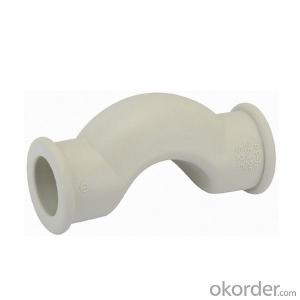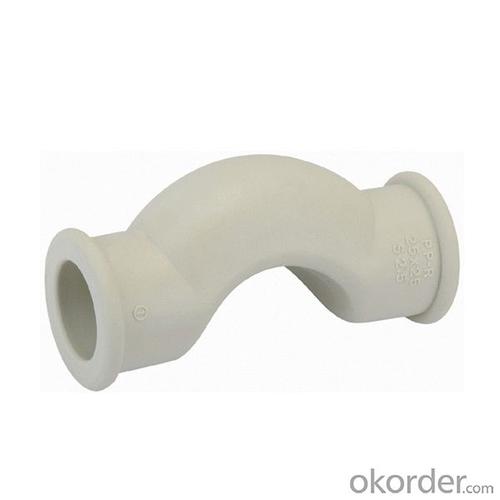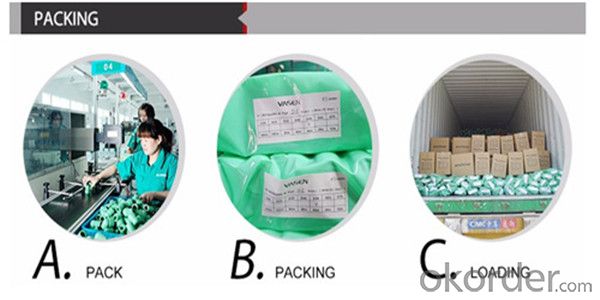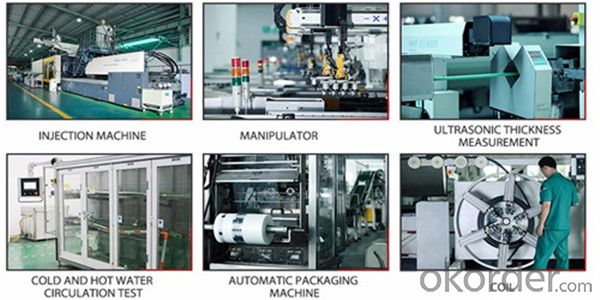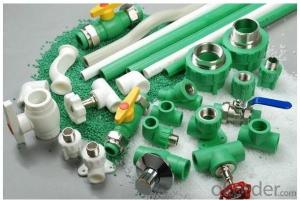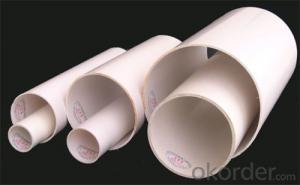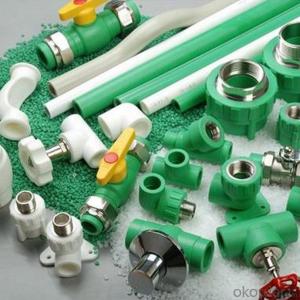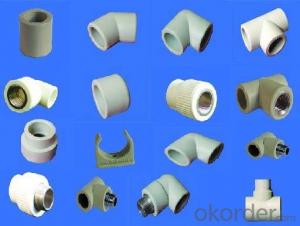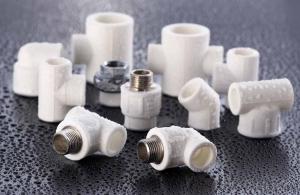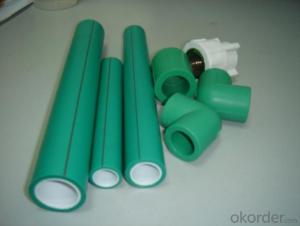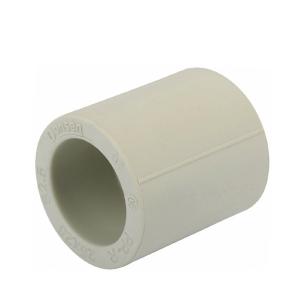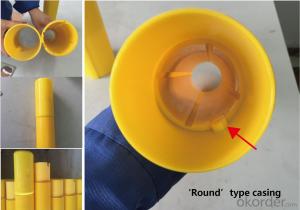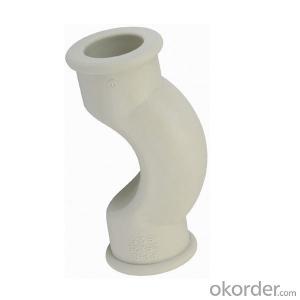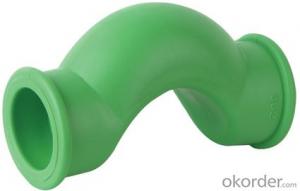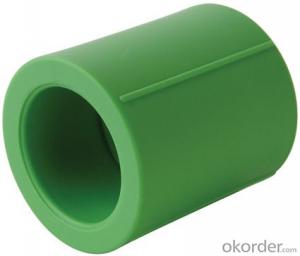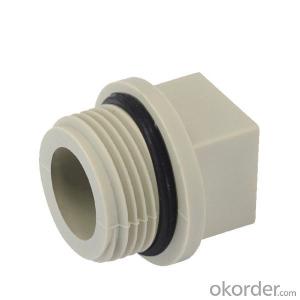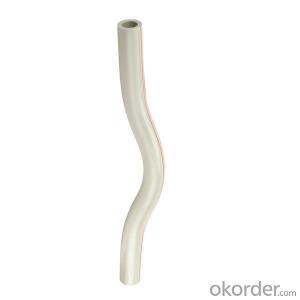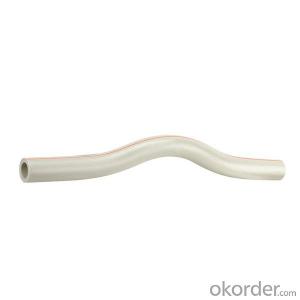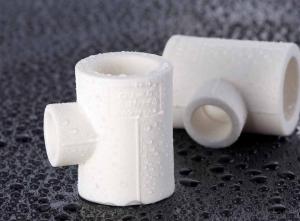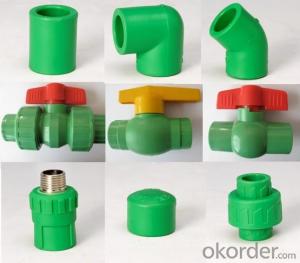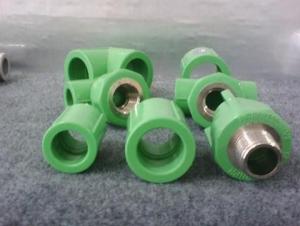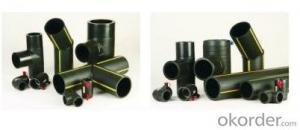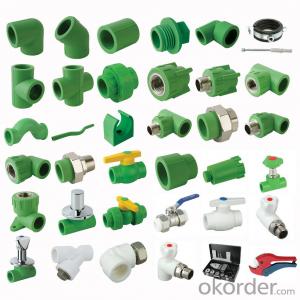Polypropylene-Random Pipe short bypass bend
- Loading Port:
- Ningbo
- Payment Terms:
- TT OR LC
- Min Order Qty:
- 1000 pc
- Supply Capability:
- 100000 pc/month
OKorder Service Pledge
OKorder Financial Service
You Might Also Like
Specification
Picture:
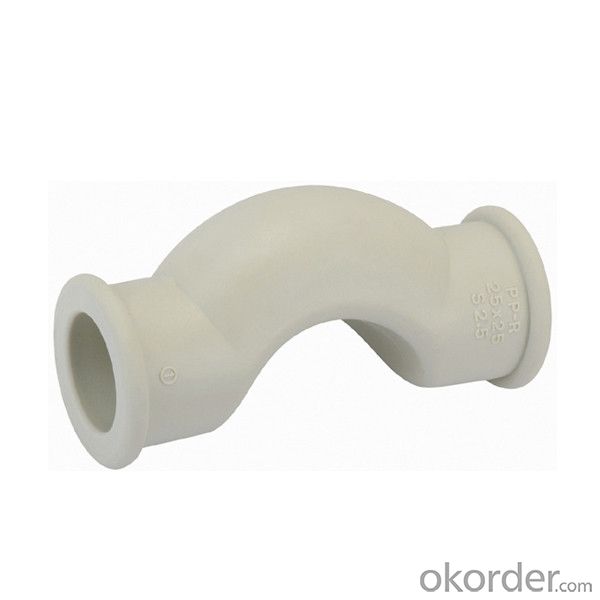

Specifications:
HYOSUNG PPR raw materials
Standard DIN8077-8078
GB/T18742.3-2002 PN25
White grey green color
Product Applications:
Distribution for cool and hot water
Duct for drinkable water system
Pipes for kinds of high-temperature and low-temperature heating system
Pipes for heating and coolling settings in solar energy system
Connecting pipe for air conditioners
Main Product Features:
Healthy, bacteriological neutral, conforming to drinking water standards
Resistant to high temperatures, good impact strength
Convenient and reliable installation, low construction expenses
Large drum hub to maximize cable life
Self-activating automatic brake hold the load securely when crank handle is released
With cable or strap
Safety guard cover available
Top quality with competitive price
Widely used in the double beam bridge crane and gantry crane
Easy to install and high quality
FAQ:
Q1:How Can I Get A Sample?
A1:You can get samples by communicate with our export sales.
Q2:How Long Is Delivery?
A2:Delivery time will be30-45days according to order quantity.
Q3:What Is The MOQ?
A3:MOQ depends on different items.
Q4:What Is Our Normal Payments Terms?
A4:Our normal payment terms now is: T/T, L/C or western union,paypal
- Q: Can plastic pipe fittings be used for solar thermal systems?
- Yes, plastic pipe fittings can be used for solar thermal systems. Plastic materials such as polypropylene and PVC can withstand the temperature and pressure requirements of solar thermal systems, making them suitable for use in connecting and directing the flow of water or heat transfer fluids in these systems. However, it is important to ensure that the chosen plastic pipe fittings are specifically designed and rated for use in solar thermal applications to ensure their durability and reliability.
- Q: Do plastic pipe fittings comply with building codes and regulations?
- Yes, plastic pipe fittings do comply with building codes and regulations. They are widely used in plumbing systems and have specific standards set by organizations such as the International Association of Plumbing and Mechanical Officials (IAPMO) and the National Fire Protection Association (NFPA) to ensure their safety and performance. These standards cover aspects such as material composition, pressure ratings, and installation requirements, ensuring that plastic pipe fittings meet the necessary building code requirements.
- Q: Can plastic pipe fittings be used for compressed air systems?
- No, plastic pipe fittings should not be used for compressed air systems as they are not designed to withstand the pressure and stress exerted by compressed air.
- Q: What are the common materials used for plastic pipe fittings?
- Common materials used for plastic pipe fittings include PVC (polyvinyl chloride), CPVC (chlorinated polyvinyl chloride), PEX (cross-linked polyethylene), and ABS (acrylonitrile butadiene styrene).
- Q: How do you connect plastic pipe fittings to galvanized iron pipes?
- To connect plastic pipe fittings to galvanized iron pipes, you can use a transition fitting specifically designed for this purpose. These fittings have a threaded end that can be screwed onto the galvanized iron pipe, while the other end is designed to connect to the plastic pipe fitting using solvent cement or a compression fitting. This allows for a secure and leak-free connection between the two different types of pipes.
- Q: Can plastic pipe fittings be used for geothermal heating systems?
- Yes, plastic pipe fittings can be used for geothermal heating systems. Plastic pipes, such as high-density polyethylene (HDPE), are commonly used in geothermal applications due to their durability, corrosion resistance, and flexibility. Plastic pipe fittings designed for geothermal systems are specifically engineered to withstand the unique requirements of geothermal heating, including high temperatures and chemical resistance.
- Q: Are plastic pipe fittings more cost-effective than metal fittings?
- Plastic pipe fittings are generally more cost-effective than metal fittings. They are cheaper to produce, lighter in weight, and easier to install, which can save on labor costs. Additionally, plastic fittings do not corrode or rust, reducing the need for maintenance or replacement. However, the choice between plastic and metal fittings ultimately depends on the specific application and requirements of the project.
- Q: Are plastic pipe fittings suitable for hydroponic systems?
- Yes, plastic pipe fittings are suitable for hydroponic systems. They are commonly used due to their durability, affordability, and resistance to corrosion. Additionally, plastic fittings are easy to install, maintain, and can withstand the water and nutrient solutions used in hydroponics.
- Q: Are plastic pipe fittings resistant to high-pressure steam?
- No, plastic pipe fittings are generally not resistant to high-pressure steam.
- Q: Can plastic pipe fittings be used for gas distribution networks?
- Yes, plastic pipe fittings can be used for gas distribution networks. However, it is important to ensure that the selected fittings are specifically designed and approved for gas applications. These fittings need to meet the necessary industry standards and regulations to ensure safety and reliability in gas distribution systems.
Send your message to us
Polypropylene-Random Pipe short bypass bend
- Loading Port:
- Ningbo
- Payment Terms:
- TT OR LC
- Min Order Qty:
- 1000 pc
- Supply Capability:
- 100000 pc/month
OKorder Service Pledge
OKorder Financial Service
Similar products
Hot products
Hot Searches
Related keywords
